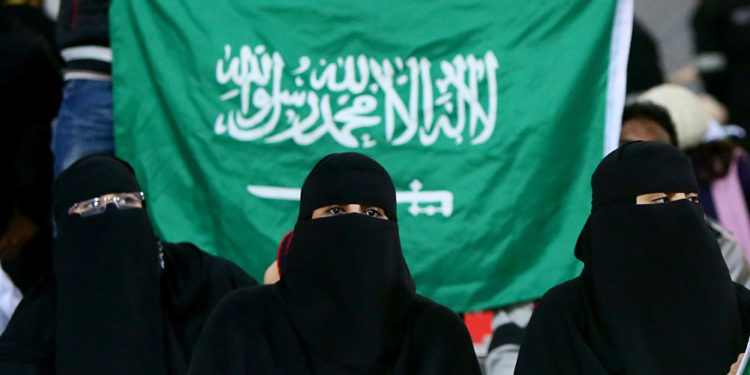
The Saudi women face tightening and restrictions on their legitimate rights based on the local and international laws and regulations that state on the women’s rights.
The local Saudi laws and regulations are just written regulations that are not implemented on the ground, where there are no systems in Riyadh that protects the women’s rights from violation. Instead, there are practices that discriminate against women and deprive them of their legal and legitimate rights.
Saudi women face systematic discrimination by men. Every woman is subject to a guardian who is entitled to act as he wishes to take many crucial and necessary decisions that belong to her and sign them on her behalf, according to the system of men’s jurisdiction over women. This system was implemented by Saudi Arabia without any legal or legitimate document.
According to the Guardian system in Saudi Arabia, women are deprived of exercising their legitimate rights in accordance with the laws and are prevented from work, study and travel, and in some cases prevented from treatment because of the absence of the guardian.
Saudi women are subjected to domestic violence under the men’s regime and women do not have a place to resort to when they are mistreated.
The state also treats women as marginalized minors who can not take their own decisions as Saudi law classifies adult women as minors.
Saudi women also face severe restrictions on prosecution in the courts. It is sometimes difficult to file a case against her guardian unless she attends a guardian or Mahram. This leads to an increase in domestic violence. It is difficult for the violated to prosecute the violator, take her right and stop him from his practices. It is also difficult for a woman to forfeit guardianship from unfit guardians.
Saudi women suffer mistreatment by their parents and men and by the state, and this is why women are trying to flee abroad.
According to Human Rights Watch, in a report on women fleeing Saudi Arabia, there are a large number of reasons why Saudi women flee the country.
The first is the guardian’s system, which restricts women’s freedom and requires them to obtain prior permission to travel abroad or even to obtain a passport. In other words, women can not travel outside the Kingdom except in the presence of the guardian. They are also required to accompany a guardian to permit her to obtain a passport. This is a clear violation of the right of women to travel in accordance with international law.
Women also need the male guardian’s permission to marry, since Saudi women can not marry anyone with the consent of their guardian, and the court does not hold them except with the presence of the male guardian because he is the decision-maker.
Saudi women can not register for study outside Saudi Arabia unless the guardian’s consent and attendance with them to complete the study outside the Kingdom, which violates the right of women to education and learning in accordance with international laws and human rights.
When Saudi women move to the labor market and employment, employers may ask permission from the guardian to employ women and work for them. This violates the right of women to work in accordance with international legislation.
Women also face difficulty to medical facilities as they require permission from the guardian to allow women access to certain health and medical care, a clear violation of women’s right to health in accordance with the principles of human rights and international law.
When a divorce occurs between men and women, women face unequal responsibility for children and inheritance and their rights to divorce. It is also possible that women trying to escape from abusive parents can be arrested and returned to their families and charged with disobeying the guardian. It is very difficult for a woman to change her guardian even if it is arbitrary. Here, the Saudi woman is deprived of changing her guardian or of dropping the state from her guardian. It is also difficult to prove that her guardian was not fit.
Saudi women need the permission of the guardian to leave prison. In other words, if their term of imprisonment ends, they can only go out after their guardian has attended or permitted her to leave the prison.
Women in Saudi Arabia who openly struggle for their rights are prosecuted and imprisoned. Women who stand in the face of the authorities or against the guardian system are prosecuted, imprisoned, charged or fined. Moreover, the situation of Saudi women human rights defenders is very shameful because they are unable to communicate their voice to the authorities.
The stories of several Saudi girls who escaped from their families have shed more light on the countless women trapped under the rule of the abusive man in Saudi Arabia.
Thus, the Saudi authorities not only violated international laws but also did not abide by their adherence to Islamic law. This prompted many of the women who were victims to flee the country and seek asylum in different countries around the world.
Despite the Saudi authorities’ claim that there are amendments to the regulations, Riyadh has not taken serious steps to remove the injustice women face. This highlights Saudi Arabia’s failure to guarantee women’s rights to health, work, travel, education, and other women’s most basic rights.